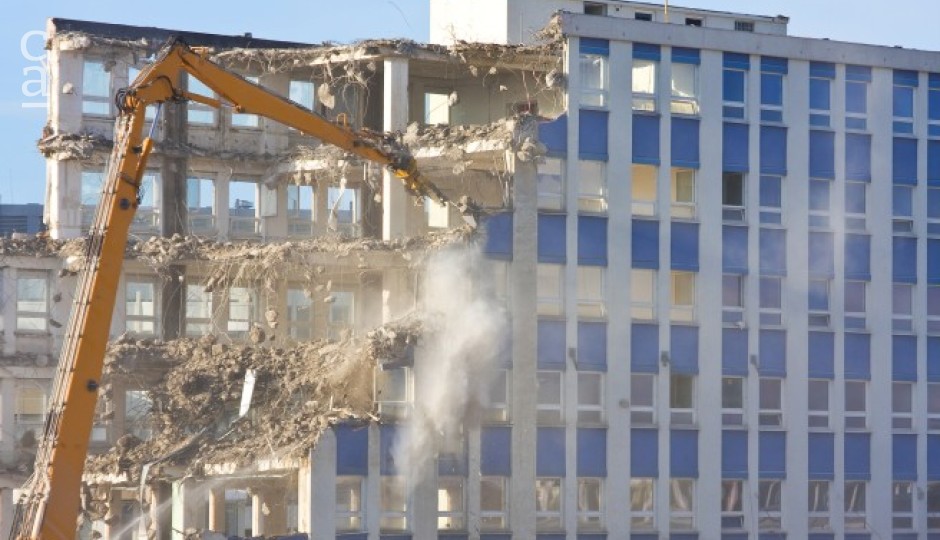Demolition of illegal buildings in Lagos: Four key lessons for developers
There are lessons to be taken from the recent spate of building collapses in Nigeria.

The collapse of the seven-storey building in Banana Island on 12 April 2023 was the latest in a series of building collapses in Nigeria and especially Lagos State.
Thereafter, the Lagos State government through the Lagos State Building Control Authority and the Lagos State Physical Planning Permit Authority immediately commenced inspections of ongoing building projects to ascertain their level of compliance with the state’s building construction regulations. Weeks later, the Lagos State government ordered the immediate demolition of several structures.
The affected structures were demolished for the following reasons:
(a) The structures were developed without obtaining a building permit, and the developments failed to meet the minimum required standard.
(b) The development of the structures was at variance with the planning permit granted and beyond the development limit granted for the zone.
(c) The structures were in a condition or carry such loads as considered to be dangerous to the users and public.
The building authorities have declared buildings in the above category as illegal and defective structures. They pose a great danger, hence the need for them to be demolished in accordance with the building regulations.
The demolition of the affected structures has left developers in a major commercial dilemma. They are likely to suffer huge legal and commercial implications as the investors are likely to sue for recovery of their deposits as well as trigger any remedy available to them in their contract with the developer.
Such experiences offer four significant lessons for developers intending to build structures in the future.
Lesson 1:
The importance of obtaining planning permits and building construction authorisation before commencing works cannot be overemphasised.
Of the many reasons listed for the demolitions by the Lagos State government, lack of building permits and construction authorisation topped the chart. Not only did the builders develop structures without obtaining the relevant statutory permits, but the structures failed to meet the minimum required standards specified in the building regulations. In some cases, structures were found to have been developed beyond the level contained in the permit and outside the approvable limit for the zone as prescribed under the Lagos State building regulations.
Developers intending to develop structures will need to apply for planning permits and authorisation to commence construction. In making this application, developers will be required to provide several documents including the following:
a. Letter of structural fitness with an indemnity clause from a registered Civil/Structural Engineer.
b. Non-Destructive Compressive Test Report.
c. Sub-soil investigation report in the case of structures above two floors and all developments in areas with low-bearing capacity soils.
d. Sanitary inspection and disinfestation report by a licensed Environmental Health Officer.
e. Detailed architectural, mechanical, electrical and structural design.
f. General Contractors' All Risk Insurance Policy of buildings above two floors.
g. Letter of undertaking of supervision of project by professionals involved.
h. Programme of Works.
i. Health, Safety and Environment Report.
The essence of obtaining a physical planning permit is to allow the building authorities to confirm that the proposed development follows the standards specified in National Building Code, town planning and the relevant building regulations. While it is not certain how long these permits and approvals will take, one strategy developers should adopt is to agree to commence the construction once all the relevant building permits and approvals have been obtained.
Lesson 2:
Engage certified professionals to guarantee quality and eliminate substandard buildings.
The use of quacks is a major reason for defective buildings and their eventual collapse or demolition. Since quality products are key to developers, it is essential to comply with the building regulations which require every building development to use professionals registered to practice in Nigeria. Particularly, the building regulations direct that the names of these professionals must be submitted to the building authorities.
In choosing an appropriate builder, architect, quantity surveyor and engineer, it is important to first confirm that the professional has been certified by the relevant professional bodies and that such a professional has a record of carrying out similar projects in the past.
One quick benefit of using certified professionals is that they risk losing their licences if they provide negligible services.
Lesson 3:
Save your time by complying with every regulatory requirement during the development.
Time is precious to every development, as such, no developer will want its project to be stopped abruptly for failure to comply with regulatory requirements. Developers therefore need to ensure that every regulatory or statutory requirement is complied with.
In addition to obtaining planning permits and authorisation to commence construction, developers are required to comply with the following requirements:
(a) Obtain building stage certification upon completion of each stage of building construction.
(b) Obtain a certificate of completion and fitness for habitation upon completion of the works and before occupation.
Lesson 4:
You’ll never go wrong if you ALWAYS SUPERVISE!
No doubt developers are busy entrepreneurs who may struggle to closely manage construction works. However, failure to supervise could derail the project and cause legal and commercial problems further down the line.
The importance of supervising construction projects cannot be overemphasised. Supervision guarantees that the materials used and all equipment and systems are of good quality, function well and conform to the standards. It is through supervision that defective works and poor workmanship are detected and promptly remedied. Building projects can then be completed successfully, within time, and within budget.
In addition to using certified professionals, appointing experienced project managers and construction lawyers is a smart decision on the part of a developer as they will ensure that the works are constructed in accordance with the building permits, designs, plans, codes, regulations, and the contract.
Photo: Building demolition (© Shawn Hempel | Dreamstime)

Osinachi Nwandem is a lawyer and arbitrator with vast experience and expertise in construction law and arbitration. He also had prior exposure to litigation and arbitration in a range of commercial disputes ranging from contracts, labour and employment, debt recovery, telecommunications, maritime and taxation.
He practices at the law firm of Aluko & Oyebode, which is based in Nigeria and has been rated as one of Africa's leading law firms.
Osinachi received his law degree from the Rivers State University of Science and Technology, Port Harcourt Nigeria. He obtained his LL.M. degree from the University of Ibadan, Nigeria.
He has a particular interest in assisting clients to resolve their construction disputes and is passionate about developing the practice of construction law in Nigeria. He is a member of the Institute of Construction Industry Arbitrators (ICIArb), the International Bar Association and the Nigeria Bar Association – Section on Business Law.
Osinachi is a regular contributor to several peer-review journals, texts and publication platforms including the Gravitas Law Review, AELEX Article Series and Mondaq, where he proffers viewpoints on recent developments in construction disputes and contracts.

